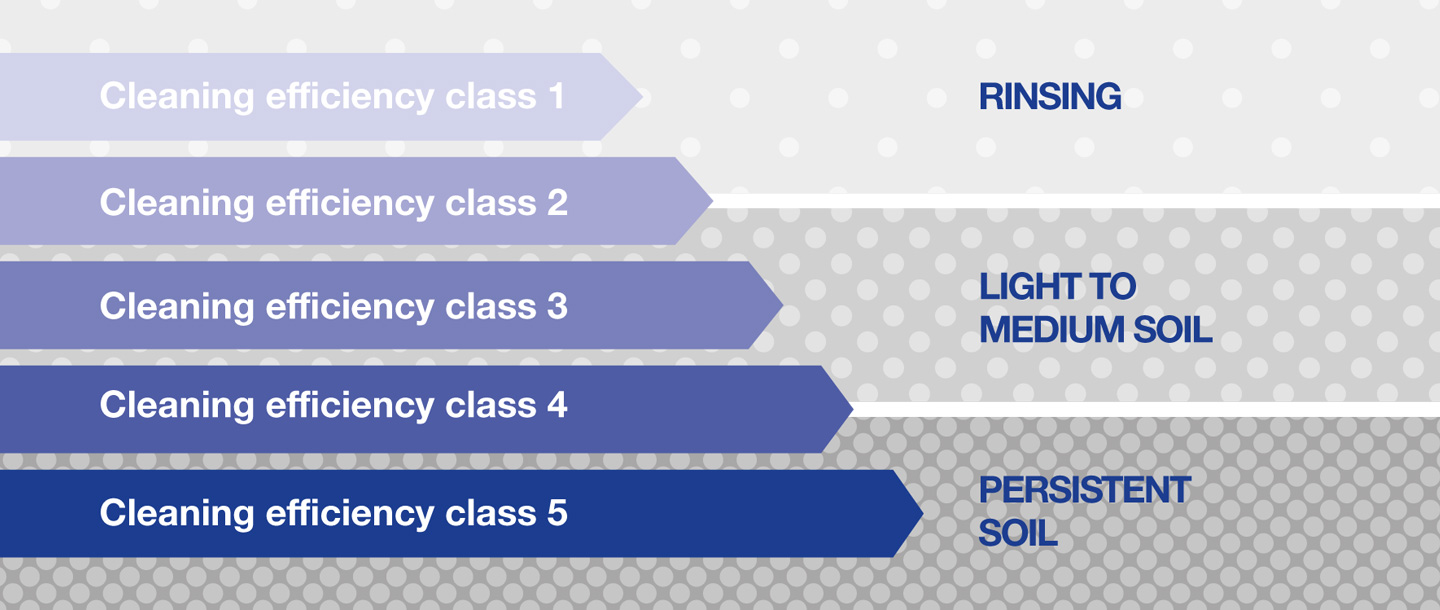Cleaning efficiency classes
Five classes for the quick and optimum nozzle selection
Lechler precision nozzles for tank and equipment cleaning are divided into five different cleaning efficiency classes. The subdivision into cleaning efficiency classes 1 – 5 is intended to facilitate nozzle selection for users. These classes make it possible to find the right nozzle for the respective application. Every nozzle from Lechler is assigned to a class. The respective class is suitable for specific cleaning tasks.
Overview cleaning efficiency classes

Type of soiling defines cleaning efficiency class
First, the required cleaning efficiency class is defined on the basis of the soil type – rinsing, light to medium soil, persistent soil. Several classes are generally always suitable for one type of soiling. It is not possible or expedient to differentiate exactly between the soil types or recommended nozzle types since there are a large number of different applications. The information should be seen as recommendations intended to make it easier to choose the right nozzle.
If your application is to clean a non-adhering powder material from a tank surface, for example, the cleaning task can be defined as „rinsing“. The nozzle series in cleaning efficiency class 1, e.g. static spray ball, or class 2, e.g. »MicroWhirly« or »MiniSpinner«, are suitable for this.
Maximum tank diameter and flow rate range
In the next step, the maximum possible tank diameter and the flow rate range of the individual series are considered. Lechler static spray balls are very economical. For cleaning medium soil, Lechler MicroSpinners or MiniSpinners are recommended. However, it is also possible that there will be no nozzle series from the two cleaning efficiency classes that is suitable at first sight in the case of very large tanks. To check this, it is recommended to refer to the overview page of the respective cleaning efficiency class. Using the number line, it is possible to see at a glance whether there is a suitable series for the specific tank diameter in the corresponding cleaning efficiency class. The following possibilities exist if there is no recommended series for the required tank diameter:
- Several nozzles are positioned in the tank so that the distance between nozzle and tank is within the required dimensions.
- By referring to the overview pages of the different cleaning efficiency classes, choose a suitable nozzle series for the respective tank diameter.
Static cleaning nozzles
In addition to the classes described above, there is also an additional subdivision into static cleaning nozzles. These include flat fan or full cone nozzles, for example. These can be used for the shadowing effect to provide complete spray coverage.



